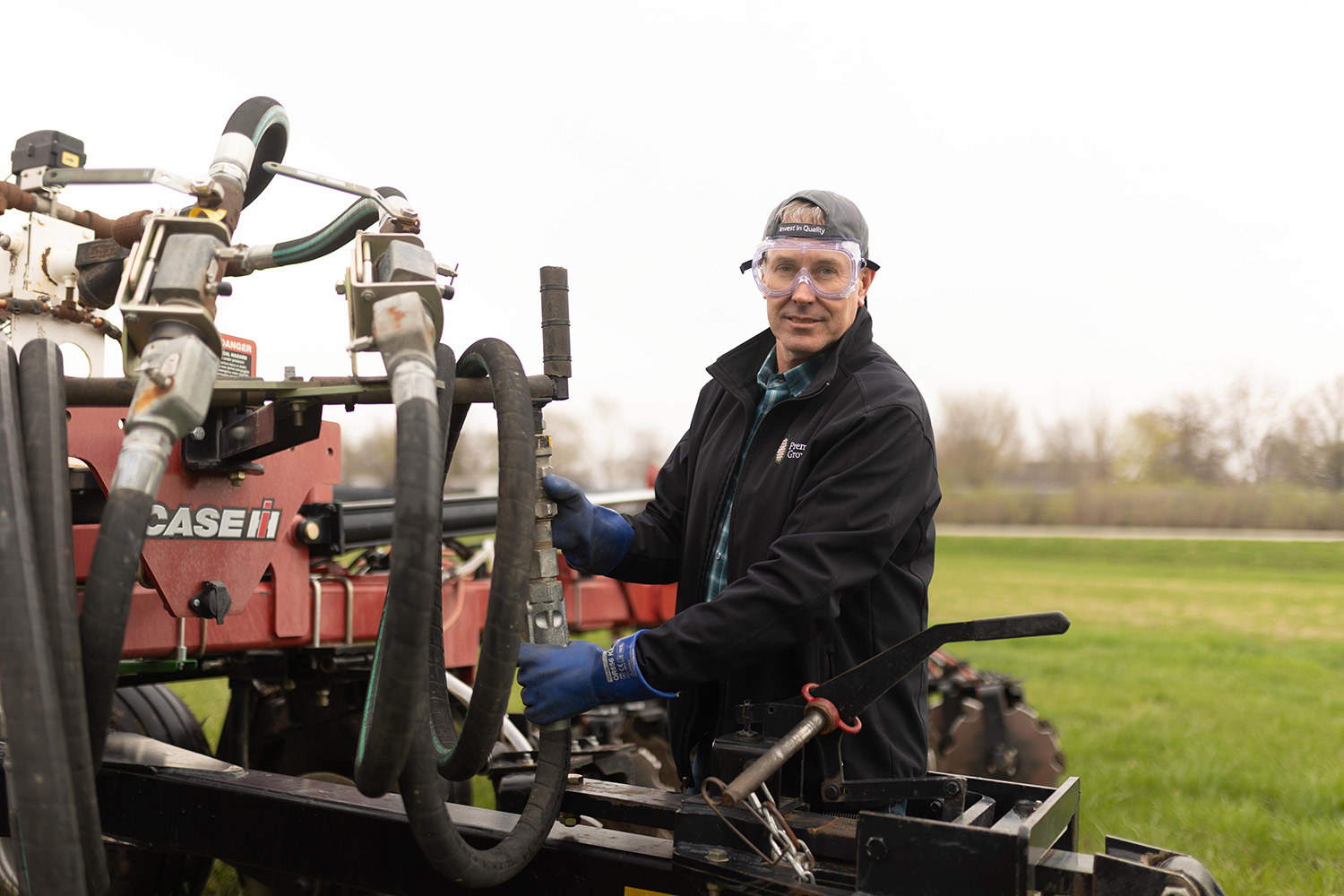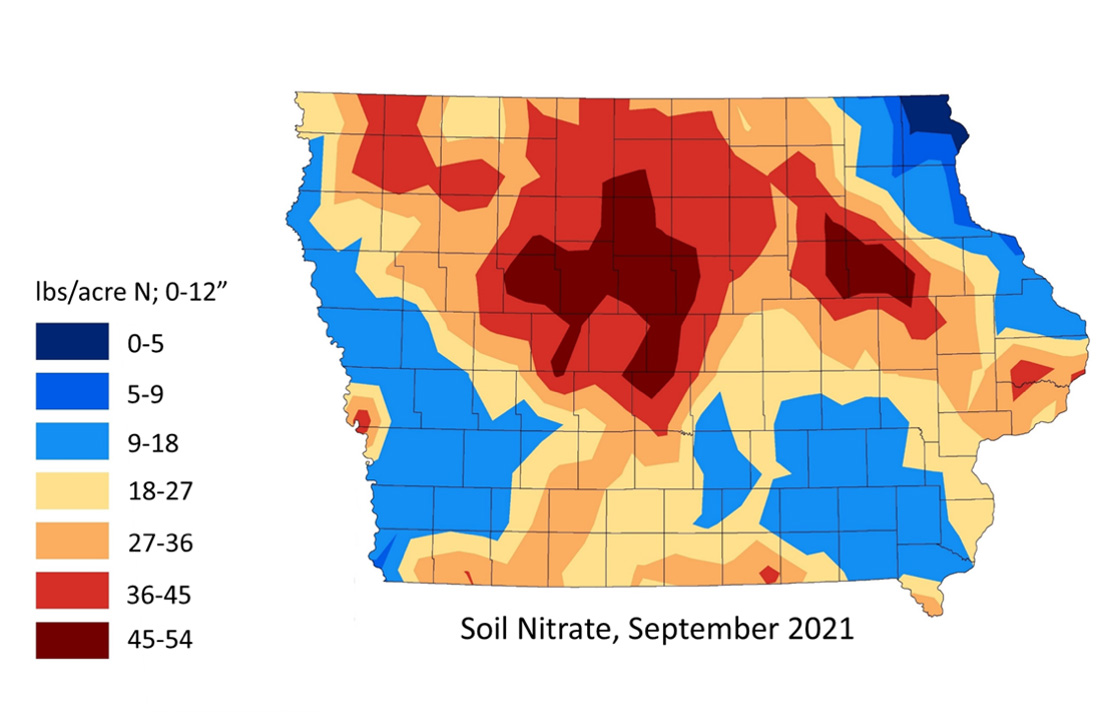
(Photo: Joclyn Bushman/Iowa Soybean Association)
Perfecting fertilizer management
July 1, 2022
By Rebekah Jones, IAWA Director of Communications
A farmer wears many hats on the farm from business owner to accountant to maintenance technician and everything in between. Many farmers are also adding one more title to this impressive list: scientist.
No, farmers aren’t donning white lab coats in the field. But they are contributing valuable data to researchers at Iowa State University (ISU) that could transform the way farmers plan their nitrogen application for improved profitability and water quality.
The study, called the Iowa Nitrogen Initiative or N Initiative, uses on-farm nitrogen fertilizer rate trials to create several tools to better pinpoint how much nitrogen is needed to grow crops in Iowa fields.
“Improved nitrogen recommendations and forecasting tools will improve farmers’ nitrogen use efficiency and reduce harmful nitrous oxide emissions and nitrate leaching. These efforts will lead to better water quality, reduced greenhouse gas emissions and improved farmer profitability, particularly in extreme weather years,” notes Sean McMahon, executive director for Iowa Agriculture Water Alliance (IAWA).
IAWA is actively seeking additional funding for and promoting this research. During the 2022 legislative session, the Iowa Legislature approved SF 5153, a $1 million appropriation for fiscal year 2023 to update the maximum return to nitrogen (MRTN) modeling for fertilizer management.
The amount of fertilizer to purchase and apply is a tough decision every year. This year was incredibly stressful as fertilizer rates skyrocketed. The billions of potential combinations that affect nitrogen uptake are adding to the challenge, including soil type, location, weather, plant genetics, type of fertilizer, application timing and soil nutrient levels.
“There are challenging pressures on farmers to fertilize at the right rate in every field, every year for productivity and the environment,” says Dr. Mike Castellano, soil science professor at ISU who leads the research. “If they hit the sweet spot, it’s the best outcome for economics and environment.”

In the study, one of the most exciting innovations is having farmers conduct scientifically robust, fully replicated and randomized trials on their farms, not university research plots, notes Castellano. Growers use variable rate application technology they, or their custom applicators, already have on their equipment.
Premier Crop Systems, a partner in the project, works with farmers to create nitrogen prescriptions for 5 to 7 acres. Farmers don’t have to make any changes to timing, seed choices or type of fertilizer, so it doesn’t slow them down.
“For growers to do this kind of research on their fields is just phenomenal,” says Sarah Windhorst, vice president of data services at Premier Crop Systems. “Farmers can use technology they’ve already invested in, and it’s really exciting to see how we can truly localize agronomy.”
The N Initiative will provide a public database of results across all 99 counties, including nitrogen application rates, corresponding yields, and factors like soil type and timing. Over the next 3-5 years ISU will use the data to make a forecasting tool to predict nitrogen efficiency across different scenarios, such as weather events.
Finally, ISU will create a hindcasting tool, like a retrospective decision tree, for the growing season. It will allow growers to look back and see how every decision they made – or could have made – impacts yields and profitability. This tool will be highly accurate since previous weather would no longer be an uncertainty.
“I think both tools are critical for learning,” Castellano says. “That’s where we’ll benefit most from this project – not just for Iowa farmers but also for the public. Everyone can learn about the challenges of nitrogen application.”
ISU piloted the research program with 20 trials in 2021. Researchers plan to expand research to at least 400 trials in all Iowa counties by 2023. Reach out to Premier Crop Systems at (515) 334-5560 to be part of the trials.
Back